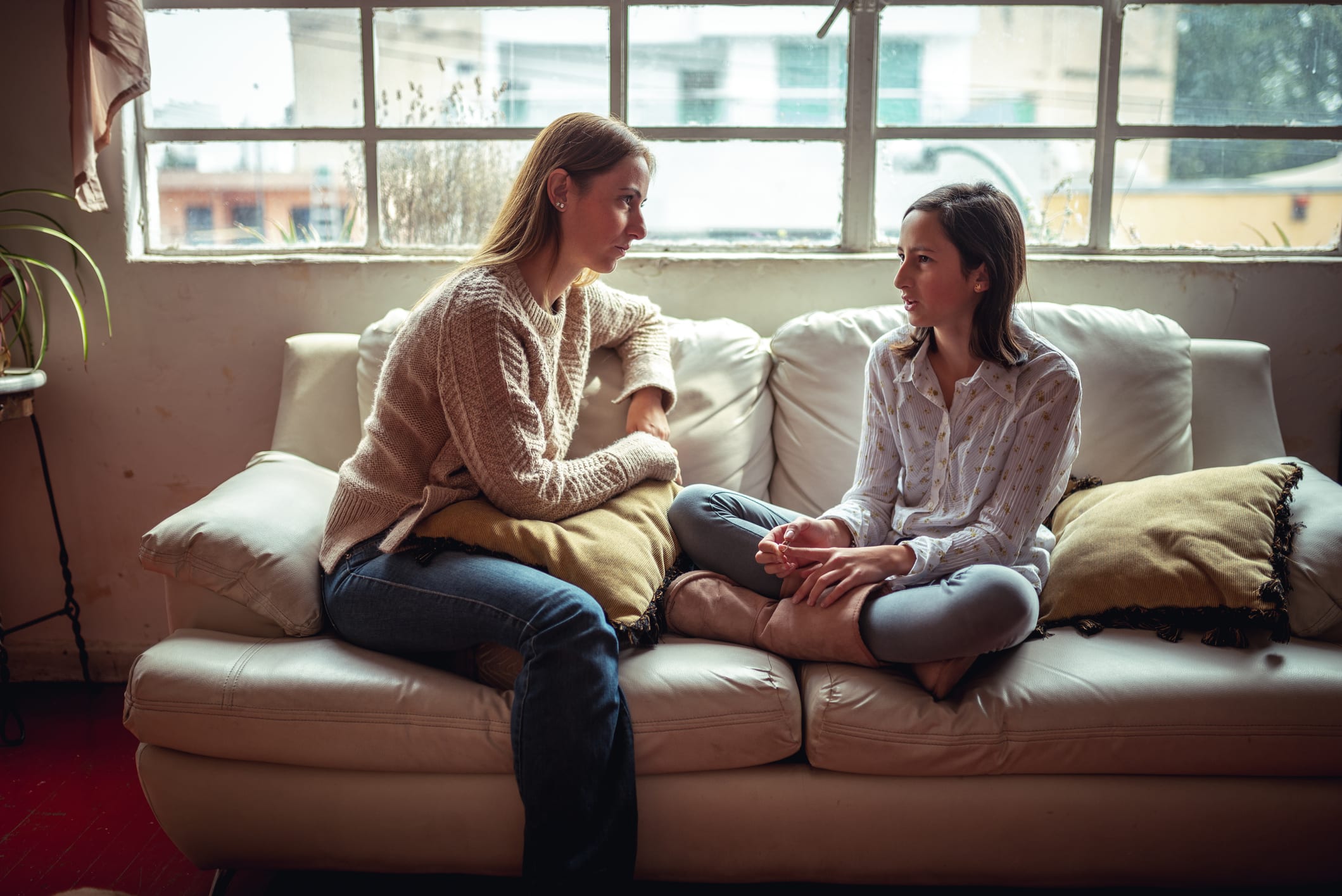Cocaine Addiction Myths

Table of Contents
Myth #1: Cocaine Addiction Takes Time to Develop
In the United States, approximately 1.5 million people twelve years of age and older have used cocaine in the past month. Cocaine is a mind-altering stimulant that is highly addictive and detrimental to health. This article will hash out eleven common myths surrounding cocaine addiction.1
The first time a person uses cocaine, the stimulant immediately enters the bloodstream and invades the brain. After cocaine penetrates the brain, a neurochemical called dopamine skyrockets. Pleasure and euphoric sensations are both results of dopamine overload when using cocaine. This same dopamine overload also results in loss of control and compulsive behavior.
Cocaine’s Effects on the Brain
From the first use of cocaine, a person’s brain associates pleasure with stimulant drug abuse. Your brain chemistry changes when mind-altering substances like cocaine are introduced into the body. Brain pathways begin to transition and shift toward addictive tendencies.
Cocaine addiction can be incurred from the first time someone partakes in the drug, so it’s important to spot the symptoms of dependency and addiction. Further, this fallacy must be disputed before cocaine consumption, as it’s not a substance that one can easily indulge in — and drop — at will. Cocaine is highly addictive and can pose damaging effects from the first use.2
Myth #2: Cocaine Isn’t That Dangerous
Cocaine, as aforementioned, is an incredibly addictive stimulant that derives from coca leaves found in South America. People use cocaine on its own and in combination with other life-threatening drugs such as heroin, meth, and fentanyl. Cocaine is powerful and dangerous both on its own and combined with other drugs.
The Dangers of Cocaine Use
Short-term cocaine abuse symptoms include paranoia, violence, and irritability. Long-term cocaine abuse symptoms are heart attacks, strokes, seizures, respiratory disease, and bloodborne diseases. Overdose is another dangerous outcome of cocaine use and threatens users both short-term and long-term.
A person can die from cocaine overdose the first time they try the drug or after using it over an extended period. What is the bottom line? Crack cocaine addiction is dangerous, potentially life-threatening, and can result in long-term health issues. Erasing the harmful (and blatantly incorrect) stereotypes, such as cocaine being a “casual party drug,” is the first step towards ensuring personal wellness.3
Myth #3: Cocaine Is Safe in Moderation
Cocaine is not a legal substance or prescribed medication. Cocaine is not approved by the FDA, as the health risks far outweigh any potential benefits. Therefore, it’s not regulated or inspected by anyone for safety. No one can know what amount of cocaine will be safe on a given day. (It’s important to note, too, that no matter how small the amount consumed, it’s a safety hazard that includes grave and often immediate risks of the individual becoming addicted.)
Types of Cocaine
There are many different forms and names, including rock crystal, freebase cocaine, and crack. Since all forms of cocaine are street drugs, the powder could be laced or mixed with various substances without a person’s knowledge. Dealers of illegal substances do not have an inspection team of trained legal professionals. Thus, there is no way to ensure the quality or content of what they sell. Let this reiterate: Cocaine is not safe to consume in any amount.3
Myth #4: Cocaine Is Safe If You Snort It
It’s not safe to snort cocaine. Cocaine is not safe to ingest in any capacity or style. If you snort cocaine, you’re vulnerable to long-term health consequences. Long-term health effects of cocaine-snorting include nosebleeds, frequent runny nose, issues swallowing, and loss of smell. These don’t even include the plethora of other symptoms cocaine consumption can entail.
The Impact of Drug Use
Although you may consider yourself a functioning drug addict, personal and professional consequences are inevitable when abusing cocaine. Many users of cocaine don’t realize that they’re addicted, instead of convincing themselves that they have their addiction stable and under control.
To the outside world, however, the signs can be blatant and unmistakable. It’s important not to delude yourself that your drug habits are safe or sustainable. Cocaine addiction treatment is available for individuals struggling with crack cocaine addiction and is an important option to consider for both yourself and the people around you.3
Myth #5: Cocaine Makes You Better at Work

The stereotype surrounding cocaine often includes the high-executive, fast-paced corporate worker. Movies and media often depict cocaine use as something that benefits high-profile executive professionals. This is an incredibly damaging image to create.
Common Symptoms
It’s important to note that when a person uses cocaine, their brain begins to adapt, and their reward pathways change. For instance, if a person repeatedly exposes themselves to cocaine, they become more sensitive to stress, displeasure, and mood swings. These are all cocaine withdrawal symptoms that occur as the high wears off. Binge use is another typical cocaine behavior.
As a person develops tolerance, they need higher doses to experience the same effect. Increased usage results in signs of cocaine addiction, including restlessness, panic attacks, paranoia, and psychosis, including hallucinations. People that appear to be functioning drug addicts will eventually experience negative consequences at home, work, or school. Cocaine drug abuse doesn’t make you better at work or more productive.4
Myth #6: Cocaine Makes You Socialize Better
Another harmful perception surrounding cocaine is that it’s just a fun party drug. This notion completely ignores the numerous risks and symptoms accompanying cocaine usage. Although cocaine behavior after use may seem to relieve your inhibitions or make you less nervous during social interactions, it doesn’t make you socialize better.
Social Dependence on Cocaine
Relying on cocaine to reduce social anxiety is unhealthy and risky. Common cocaine behaviors are engaging in risky behavior or making impulsive decisions. This leads the participant to experience uncharted and unsafe territories. This can lead to unsafe sexual behavior, cross-addiction, and life-threatening choices.
For instance, if a perceived friend asks you to commit a crime while using cocaine, you’re more likely to agree to feel accepted socially and are less likely to weigh the potential negative outcomes of your choices. If you struggle to interact socially while sober, therapy is an excellent tool for overcoming your fears.
Myth #7: Cocaine Makes Sex Better
Individuals with cocaine problems are more likely to be diagnosed with HIV or a sexually transmitted infection. Signs of cocaine high include euphoric feelings, excessive energy, and hyper-alertness. In a study examining functioning drug addicts, participants using cocaine were less likely to practice safe sex and acted on their sexual desires in unsafe ways.
Cocaine and Sexual Activity
Researchers discovered one of the signs of a cocaine high being extreme impatience. Those under the influence of crack cocaine don’t consider the long-term consequences of their actions and are more susceptible to indulge in risky behavior that can ultimately hinder their lives in the future (sexually or in any other capacity).
In addition to physical health risks, sex while under the influence of cocaine can result in mental health and emotional issues. The short-term gain from cocaine usage doesn’t outweigh the inevitable long-term consequences. This is important to consider when pursuing recovery.5
Myth #8: Cocaine Doesn’t Make It Hard to Function
Cocaine problems and abuse make it hard to function physically and mentally. Just because a person appears to be a functioning drug addict doesn’t mean cocaine behavior isn’t negatively affecting their life. Often, the media only depicts that euphoric high that accompanies crack cocaine usage, romanticizing that element instead of the inevitable crashes and problematic symptoms.
Health Risks of Cocaine Use
Long-term symptoms of cocaine use can include severe organ damage. Gastrointestinal issues such as tears and ulcers are symptoms of cocaine use, which can ultimately prove detrimental to functionality and quality of life. Dangerous weight loss, malnourishment, and chest pain are also symptoms of cocaine use.
Medical professionals commonly document heart attacks, strokes, and seizures as signs of cocaine addiction. People who appear to be functioning drug addicts are still in immediate danger and struggle to function. It’s crucial that those undergoing this addiction, whether they consider themselves high functioning or not, seek help to regain control over their lives.
Myth #9: Cocaine Highs Are Easy to Hide
Despite the myths, the signs of cocaine addiction are identifiable and difficult to hide. What are the signs of cocaine high you can look for? Dilated pupils, rapid speech, twitches, restlessness, irritability, and hypersensitivity are signs of cocaine use. Once you know the symptoms, the cause is often easy to diagnose.
The longer a person remains addicted to crack cocaine, the more intense the symptoms appear. However, they’re often recognizable even in the most “high-functioning” and beginner users.
If you notice these signs of cocaine addiction in a loved one or are trying to hide these signs of cocaine use, it’s crucial to seek out cocaine addiction treatment. There are resources available to you and the people around you, and they must be both destigmatized and promoted. Maintaining both mental and physical health depends on this course of action.
Myth #10: Cocaine Highs Can Last for Days & Don’t Have Crashes
When a person uses cocaine, the effects appear and disappear very quickly. For example, after injecting, smoking, or snorting cocaine, the high usually lasts anywhere from a few minutes to an hour. This further promotes the harmful stereotype of crack cocaine being a quick and easy “party drug.” While the high doesn’t typically last for too long, what does last (and pose immediate consequences), are the crashes that follow.
Withdrawal Symptoms
When a person’s body becomes dependent on cocaine, the crashes or withdrawal symptoms can become severe and life-threatening. Therefore, it’s critical to seek treatment when you notice signs of cocaine addiction. Cocaine crash withdrawal symptoms include depression, increased appetite, fatigue, insomnia, and slowed thinking.
When people begin to experience a cocaine crash, they use increased doses more often to avoid discomfort. At that point, overdose becomes a significant concern. Signs of cocaine overdose to look for are heart attack, seizure, stroke, difficulty breathing, and hallucinations. If you’re around someone exhibiting these signs of a cocaine overdose, you should immediately call for emergency medical help.
Get Help for Cocaine Addiction
Are you noticing the signs of cocaine use in a family member or friend? Do you personally struggle with cocaine abuse? Behavioral therapy is an effective tool used to treat cocaine addiction. This process is not an experience that you, or anyone around you, has to undergo alone.
You can get help for cocaine addiction by contacting a treatment center and participating in sober support groups. It is best, and often most effective, to seek outside, professional help in your recovery journey, and it is never too late to get help for cocaine addiction.
If you or a loved one are looking to overcome cocaine addiction, reach out to our team at Arrow Passage Recovery today. Our staff of addiction treatment professionals can help you start the journey to recovery or meet you wherever you are in the healing process. Contact us to learn more.
Resources
- https://www.drugabuse.gov/publications/research-reports/cocaine/what-scope-cocaine-use-in-united-states
- https://www.ncbi.nlm.nih.gov/pmc/articles/PMC2851032/
- https://www.drugabuse.gov/publications/drugfacts/cocaine
- https://www.drugabuse.gov/publications/research-reports/cocaine/what-are-long-term-effects-cocaine-use
- https://www.hopkinsmedicine.org/news/media/releases/study_affirms_that_cocaine_makes_users_more_likely_to_risk_unsafe_sex_














